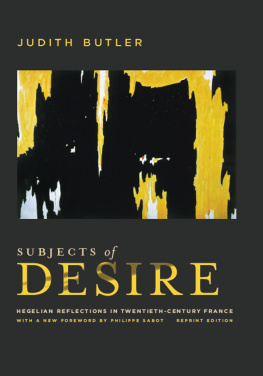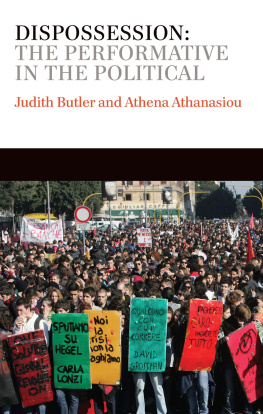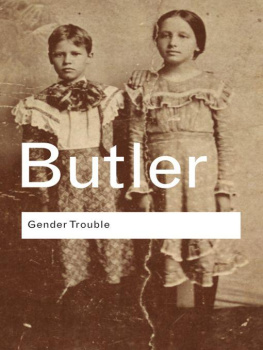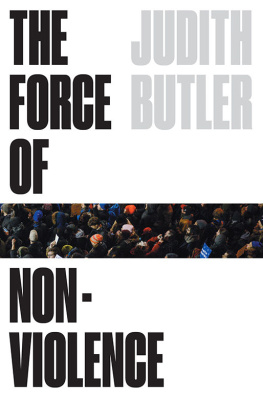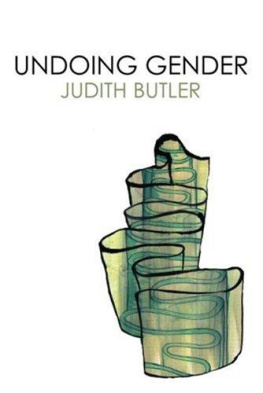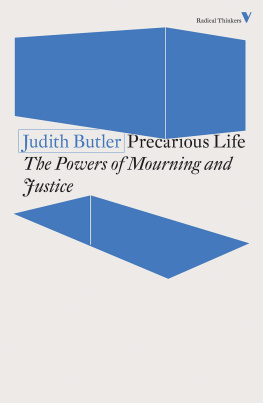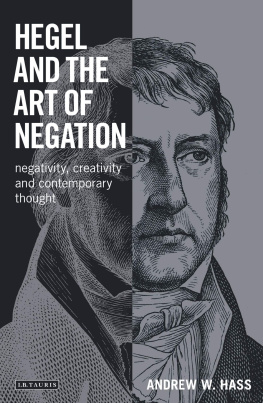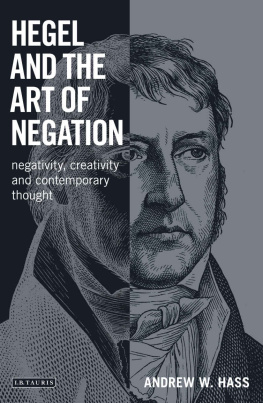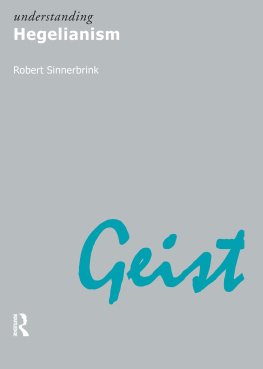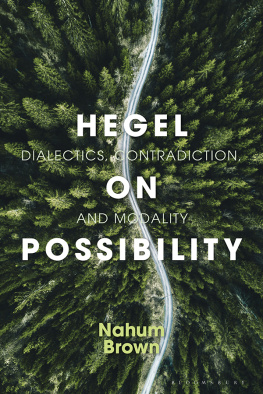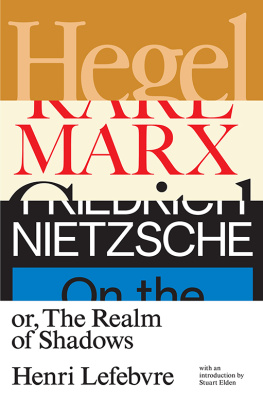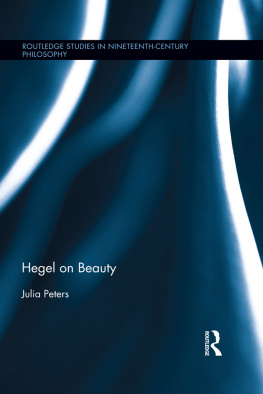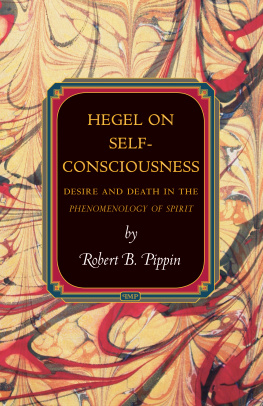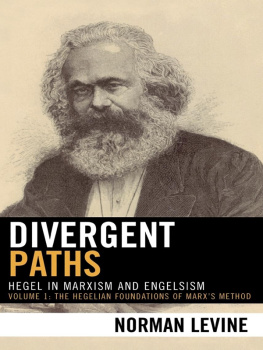Subjects of Desire
SUBJECTS OF DESIRE
Hegelian Reflections in Twentieth-Century France
Judith Butler
Columbia University Press
New York
The Andrew W. Mellon Foundation, through a special grant, has assisted the Press in publishing this volume.
Library of Congress Cataloging-in-Publication Data
Butler, Judith P.
Subjects of desire.
Bibliography: p. 253
Includes index.
1. Hegel, Georg Wilhelm Friedrich, 17701831Influence. 2. Desire (Philosophy) 3. Philosophy, French20th century. I. Title.
B2948.B86 1987 128' .3 86-33458
ISBN 978-0-231-06451-4 (pbk.)
Columbia University Press
New York Guildford, Surrey
cup.columbia.edu
Copyright 1987 Columbia University Press
Preface to the Paperback Edition copyright 1999
Judith P. Butler
Foreword copyright 2012 Columbia University Press
All rights reserved
E-ISBN 978-0-231-50142-2
A Columbia University Press E-book.
CUP would be pleased to hear about your reading experience with this e-book at .
Book design by Ken Venezio
Contents
1. Desire, Rhetoric, and
Recognition in Hegels Phenomenology of Spirit
Foreword
Finished with Hegel?
). In Subjects of Desire, however, the dialogue with Hegelian thought has different stakes. It consists both in reconstituting the conditions of elaborating a Hegelian paradigm of desire, as that paradigm emerges in the Phenomenology of Spirit, and in tracking a series of re-appropriations of this trope of desire through a particularly rich sequence of French philosophy, beginning with Alexandre Kojves seminar at the Ecole des Hautes Etudes in the 1930s and stretching at least until the first volume of Foucaults History of Sexuality in the mid-1970s. Within this framework of thematic and historical analysis, Butler sets about distinguishing different contemporary reformulations of the question of desire each of which leads to an interrogation of the totalizing impetus often attributed to the Hegelian subject. Thus, Kojve, Hyppolite, and Sartre take up, each in his own way, the problem of knowing whether desire can be satisfiedand under what conditions this potential satisfaction fulfills the desiring subject at the same time that it reveals the ontological lack by which that subject is constituted. For their part, in a manner ostensibly more critical, Derrida, Deleuze, or Foucault each undertakes to depose a certain metaphysics of identity, of the subject, or of presence, taken to support the Hegelian doctrine of desire, by putting into play instead a nondialectical thought of diffrelance.
This vast inquiry into the avatars of French Hegelianism (from its renaissance to its dissolution) has the virtue of allowing us to reconstitute the relationship that contemporary French philosophy has been able to maintain with Hegel. But Butler does not restrict herself to this. She proposes equally to interrogate the inherent ambiguity in what she calls French post-Hegelianism, comprising various attempts since the 1960s to escape from Hegel. This ambiguity derives particularly from the fact that criticisms of Hegel within the French tradition often rest on a misapprehension about Hegelianism: They impute to the Hegelian subject an ontological autonomy and self-sufficiency, whereas the very fact of being a subject of desirethus a subject who is subject to desire, and to a desire for recognitionputs into play a negativity and a dialectic of intersubjectivity that renders eminently problematic the supposed plenitude of this subject. The reading of The Phenomenology of Spirit Butler proposes at the beginning of the book is very instructive in this regard. She shows, indeed, that the science of the experience of consciousness is not an undertaking in constitution or foundation making but rather opens onto a self-dissolution of the point of view of consciousness when that consciousness finds itself confronted with the demands of absolute knowledgein other words, precisely with that regime of truth that exceeds any objective constitution by consciousness. All along the course of this deceptive trajectory that leads from consciousness to Spirit, the Hegelian subject thus appears afflicted by a negativity that undermines its identity and that condemns it to a kind of permanent ec-stasiswithout any final return of the self to itself. Desire, which has an animating function in the Bildung or cultivation of consciousness, testifies to this precarity of the ego (unsatisfied and incomplete) at the same time that it constitutes the matrix of a possible identification and satisfaction that emerges from the specular play of recognition: Desire is the desire to be recognized by another desire, by the desire of another who limits the subjects claim on autonomy or who, at least, stands for the requirement that the subject become alienated from itself in order to be recognized. It is between these two poles of desire and recognition, out of the play of negativity and alienation, that the subject finds its problematic elaboration. This subject is thus not a definitive and preconstituted given, but represents rather the ideal or fictive precipitate of a process of assimilation and appropriation of the totality of differences in the reflexive immanence of the self.
To put the accent thus on the trajectory of the Hegelian subject in its pursuit of satisfaction, of recognition, and of absolute knowledge, but on the basis of an ontological rupture with the world and with itself in the ordeals of desire, is to provide the means of measuring the profound and enduring influence of Hegel on the French philosophical landscape since the 1930s. In fact, Butler shows how Kojve, Hyppolite, and Sartre effect an anthropological and existential revision of Hegelianism. For these thinkers the task is to know whether negativity can be overcome through History or whether it instead forms the fabric of a human existence founded on becoming and dissatisfaction, doomed to be nothing other than a useless passion (Sartre)craving, lacking the Absolute. The Kojevian fiction of the death of man at the end of History and the Sartrean dramatization of an ontological dualism (in itself/for itself) that opens only onto satisfactions that are either imaginary (man as God) or in the imaginary (literature) clearly mark the double orientation of this first French reception of Hegel. In a sense, both expose the historical collapse of a metaphysical model of the subject as assured of itself and of its own identity in its immanent relation to the Absolute. Hyppolite elaborates the story of this collapse in his commentary on the Phenomenology of Spirit, which underscores the tragic structure of conscious experience. In the tradition of Jean Wahl, he imagines a Kierkegaardian Hegel!
At the same time, a temptation persists here to overcome this failure in an attempt to restore the subjects lost unity with itself and with the world, even if in the imaginary or posthistorical domain. And according to Butler, it is precisely to this fictive re-elaboration and dialectical restoration of a subject lacking substance, lacking the absolute, that the overtly antidialectical posture of the following philosophical generation responds. For that generation, Hegelian

